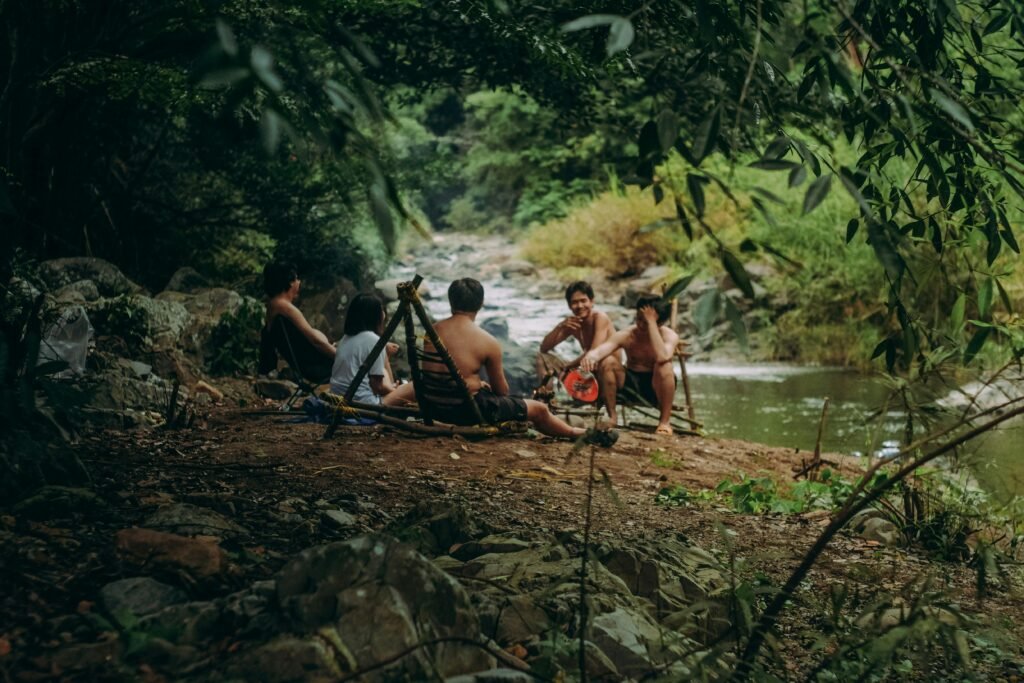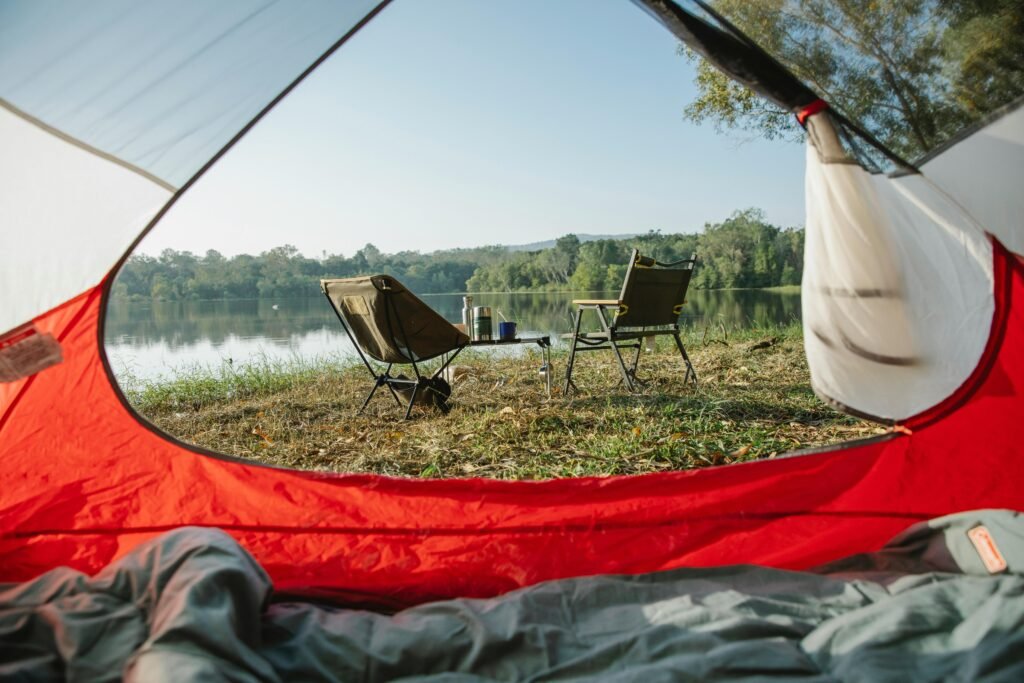When stress and anxiety are common in today’s world, taking care of our mental health is key. Camping is one such way that people neglect, but it can be highly effective. The great outdoors has a lot to offer with regards to mental health, from reducing stress to improving mood and making one feel close to nature.
Connecting Nature and Mental Health
Different studies have shown that staying close to nature has a positive impact on our mental well-being. Spending time in natural environments has been linked to lower levels of stress, anxiety and depression. This can help us relax after everyday struggles as the sights, sounds and smells of nature have calming effects on our minds.

Relieving Stress through Camping
One of the biggest advantages that come with camping is the chance it gives us to escape from the city’s hustle and bustle. We should embrace outdoor living and let go off all worries while immersed in nature. Other ways may not provide moments as unique as sitting around a glowing campfire or looking at the stars above.
Camping has Physical Health Benefits
Taking part in outdoor activities when camping improves our physical wellbeing alongside helping with mental health issues. Hiking, swimming or even exploring wilderness can boost cardiovascular fitness, develop muscles as well as improve overall body fitness level. On top of that, fresh air and sunlight exposure strengthen immunity system which promotes better sleep patterns.
A Clear Mind with Better Concentration
In the present-day world where there are screens everywhere distracting us constantly camping offers an opportunity for unplugging ourselves back into reality. By disconnecting from technology and immersing ourselves in natural environments we become more conscious about what we want leading better concentration levels and cultivating mindfulness that we can take into other areas of life.
Social Bonds Formed During Camping
It is also during camping that friends or family members deepen their social ties amongst themselves. Sharing such experiences outside with loved ones creates stronger bonds by providing lifelong memories. Camping also promotes team spirit and unity even when it comes to things like roasting marshmallows over a campfire or going for a hike together.

Better Mood and Happier Life
The positive serotonin effects of nature have been documented in many contexts; spending time outside increases the feelings of joy and contentment. The beauty of natural landscapes in addition to the freedom experienced during camping can largely boost our moods.
Getting a Better Night’s Sleep
Sleeping out under the stars can have a dramatic impact on sleep quality. It turns out that regulation of one’s circadian rhythm through exposure to natural light during day time and darkness at night is helpful in resetting one’s internal clock so as to achieve more restful, rejuvenating nights’ sleep.
Camping As an Act of Mindfulness
Being surrounded by nature lets us be here now, witness what we see, hear, smell and feel around us. By camping mindfully, we learn how to slow down while appreciating our surroundings beauty, getting into tune with rhythm found in nature that governs life outside urban areas.
How Camping Can Help You Face Challenges
Camping has its own kind of resilience and enables people to solve problems since one has to overcome the obstacles that come with it, such as erecting a tent, building a fire or hiking through unpredictable weather. Adapting to new environments helps us become self-reliant and resourceful in ways that are applicable even in other aspects of our lives.
Creativity and Inspiration in Nature
For ages now, nature has served as an inspiration for artists, writers and creators from various fields. Every camping trip spent outside exposes us to interacting with different things which can elicit creativity, imagination and innovative thinking.
Camping as a Therapeutic Activity
Camping is an excellent outlet for individuals struggling with mental health issues including anxiety or depression. Such activities like being in environment’s healing bosom, engaging in physical exercises while at the same time disconnecting oneself from stressors can give relief needed on challenging situations.
Safety Considerations for Camping
Although going camping is good for mental health there is need on emphasizing safety when heading out into the wild. Safety measures such as telling someone about your whereabouts ahead of time; carrying important equipment like first aid kits and emergency gear; knowing local animals could guarantee safety during camping trips.
Sustainable Camping Practices
It is necessary therefore that we focus on sustainable practices that minimize any damage done by our presence outdoors while camping. In order to preserve the beauty of nature so that children yet to be born will continue enjoying it through following Leave No Trace principles such as not littering places visited by tourists with waste materials, conserving wildlife habitats as well as minimizing campfire impacts.
The paper concludes by asserting that camping holistically improves mental health through stress relief, physical activity opportunities, social interactions among others plus mindfulness practices or skills creative impulse stimulation therapy benefits amongst others. By celebrating what mother earth offers by giving a chance towards camping experiences individuals improve their own well-being while at the same time developing deeper understanding of the world they inhabit.



